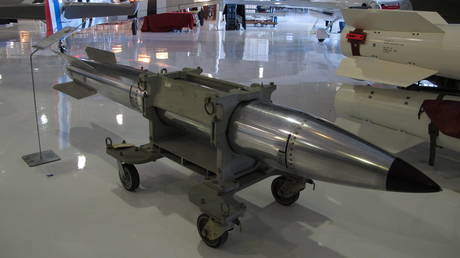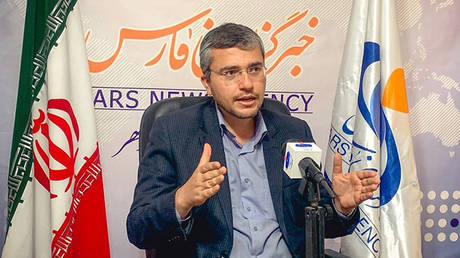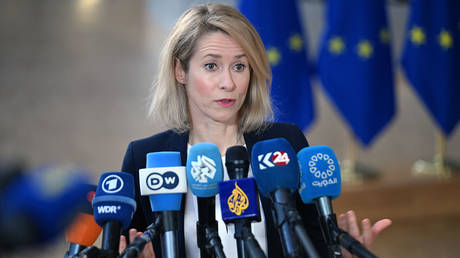
The 360-kiloton weapon will “credibly deter” potential threats, a top defense official has claimed
The US Defense Department has announced that it will develop a new version of the B61 nuclear bomb with 24 times the destructive power of the one dropped on Hiroshima at the end of World War II.
The Pentagon revealed that it would seek Congressional approval and funding for the development of the weapon in a press release on Friday. According to a fact sheet accompanying the announcement, the bomb, dubbed the B61-13, will have a similar yield to the B61-7, which it is intended to replace.
The B61-7 has a maximum yield of 360 kilotons, making it 24 times more powerful than ‘Little Boy’, the 15-kiloton bomb that leveled Hiroshima.
The B61-7 is not the most powerful nuclear weapon in the US arsenal. That title goes to the B83, a thermonuclear gravity bomb with a yield of 1.2 megatons of TNT. The B83 replaced the even more powerful B53, which packed a 9-megaton punch and was retired in 2011.
The most powerful nuclear bomb ever tested, however, was built by the Soviet Union. Detonated in 1961, the ‘Tsar Bomba’ had an estimated yield of 58 megatons, equivalent to more than 1,500 Hiroshima bombs.
“Today’s announcement is reflective of a changing security environment and growing threats from potential adversaries,” Assistant Secretary of Defense for Space Policy John Plumb said in the release. “The United States has a responsibility to continue to assess and field the capabilities we need to credibly deter and, if necessary, respond to strategic attacks, and assure our allies.”
The announcement came less than two weeks after the US conducted an underground explosion at a nuclear testing range in Nevada, its first since the early 1990s. The blast took place just hours after the Russian State Duma, the lower chamber of parliament, passed a bill on withdrawing ratification of the 1996 Comprehensive Nuclear-Test-Ban Treaty (CTBT). The treaty was never ratified by the US.
Russian President Vladimir Putin has said that if the US resumes nuclear testing, which he believes it may do as part of the modernization of its arsenal, Moscow will follow suit.




